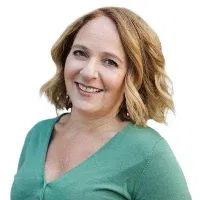Articles / Clinical Conversations: Preservation of Fertility and Fertility Options During and after Cancer Therapy | Part two


writer
Specialist, Gynaecologist and Reproductive Endocrinologist; Associate Professor of Obstetrics and Gynaecology, University of Melbourne, Royal Women’s Hospital; Clinical Director and Head of Clinical Research, Melbourne IVF
This is part one of this series. Read Part 1 >>
Practice points
• There are now national and international guidelines highlighting the importance of a fertility discussion with young cancer patients.
• Something may not always be possible for fertility preservation before a person with cancer has to start their treatment.
• There are other options such as donor eggs, donor sperm and surrogacy for patients who are unable to have a baby after their cancer treatment.
• There are now lots of studies showing that in women with breast cancer who have low risk disease, having a baby subsequently, regardless of how it is achieved, does not increase your risk of recurrence.
• There is also now a large body of evidence suggesting that in patients with low risk disease, fertility treatment after breast cancer, or fertility-preserving treatment before breast cancer treatment, does not increase the risk of recurrence.
• Egg freezing is not done in women at high risk of breast cancer recurrence but they may consider donor eggs and surrogacy, because it is in those women that there may be an increased risk from pregnancy or fertility treatment.
• Ensure you get your patients to speak to a fertility team about their fertility for the future if they are diagnosed with cancer.

Alcohol Addiction Assessment and Advice

Premature Ovarian Insufficiency – The New Guidelines

Paediatric Allergic Rhinitis & Immunotherapy

Autism Spectrum Disorder – Managing Challenging Behaviours

writer
Specialist, Gynaecologist and Reproductive Endocrinologist; Associate Professor of Obstetrics and Gynaecology, University of Melbourne, Royal Women’s Hospital; Clinical Director and Head of Clinical Research, Melbourne IVF


Increase
No change
Decrease
Listen to expert interviews.
Click to open in a new tab
Browse the latest articles from Healthed.
Once you confirm you’ve read this article you can complete a Patient Case Review to earn 0.5 hours CPD in the Reviewing Performance (RP) category.
Select ‘Confirm & learn‘ when you have read this article in its entirety and you will be taken to begin your Patient Case Review.
